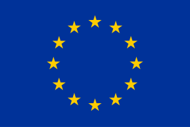Curious about alternatives to contentious fertilisers? Read RELACS’ new practice abstracts
The RELACS project just released two new practice abstracts on promising alternatives to fertilisers suitable for organic farming.
Struvite as alternative to phosphorus
All crops need phosphorus (P) to grow, but only a few P sources are permitted in organic farming. Rock phosphate is one of them, but because it comes from non-renewable sources and often contains high concentrations of heavy metals such as Cadmium, the organic sector is proactively looking for alternatives. In a new practice abstract, RELACS looks at struvite’s potential as alternative source of phosphorus for organic agriculture to satisfy plants’ phosphorus needs.
Recycled human waste
Recycling nutrients from human waste, such as urban food and organic waste, is a promising strategy to overcome the negative nutrient balances in organic farming, provided it is treated to become hygienic, biologically stable and easy to handle. Processing of these wastes by anaerobic digestion in a closed system produces fertiliser (digestates) and energy while avoiding nutrient losses and greenhouse gas emission. In a new practice abstract, RELACS explains the benefits of anaerobic digestates and gives practical recommendations for its use.
Practice abstracts contain practical guidelines for different actors on the food and farming systems to solve a given problem. Publishing partners are the Research Institute of Organic Agriculture (FiBL) and IFOAM Organics Europe.
Visit the RELACS website to learn more and follow the latest project’s developments on Twitter and Facebook using @RELACSeu and #RELACSeu.
RELACS seeks to promote the development and adoption of environmentally safe and economically viable tools and technologies to reduce the use of external inputs in organic farming systems. IFOAM Organics Europe is responsible for the communication and dissemination of project results as well as the coordination of the science-practice-policy dialogue.



